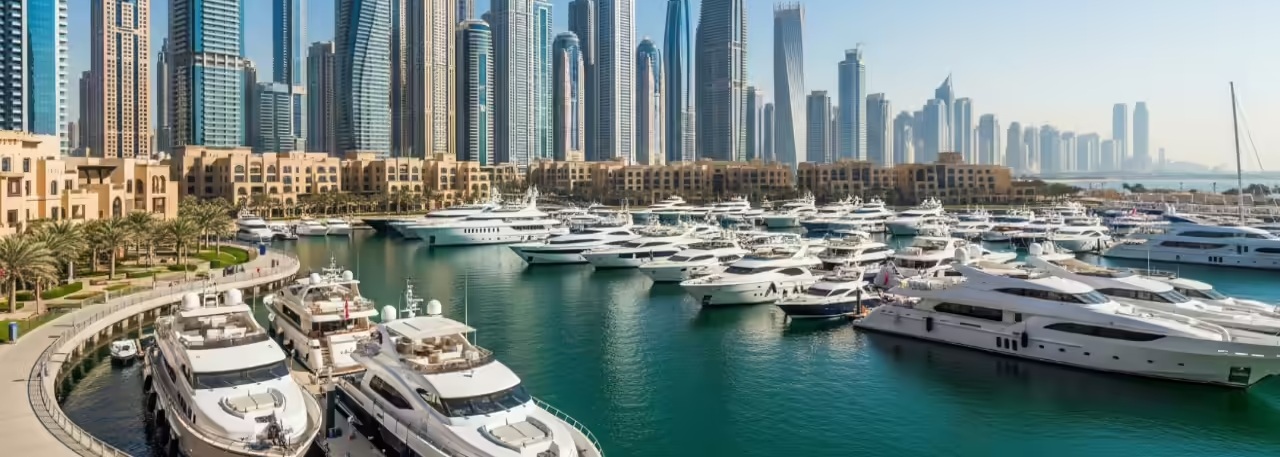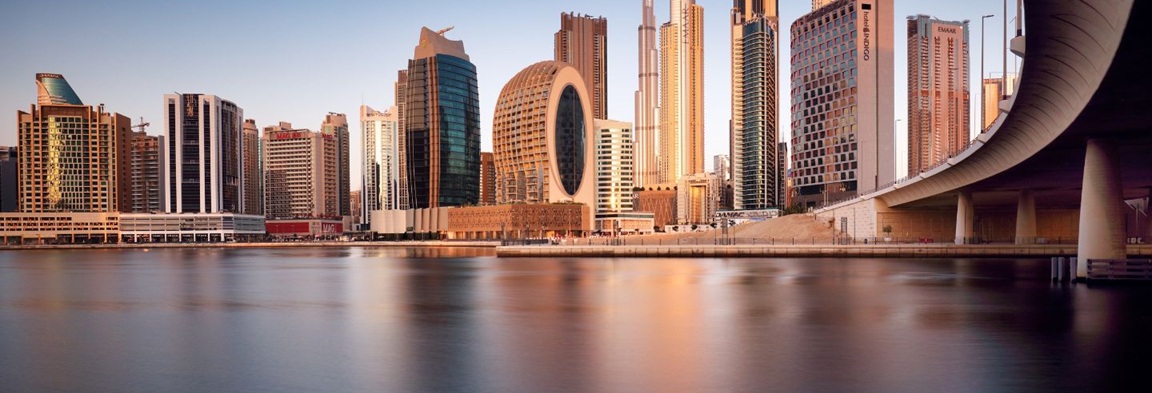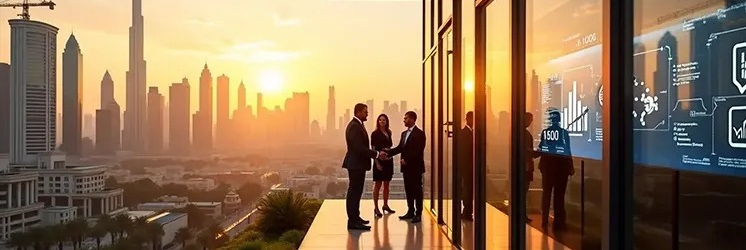How Dubai is Reinventing Mobility—And Why Indian Startups Should Pay Attention
Saturday, 12 July 2025
Dubai, once a desert outpost, is now a global hub where luxury meets technology—and in 2025, it’s making headlines again for how it moves people and goods. From autonomous taxis to air mobility corridors, from EV-only fleets to AI-led logistics, Dubai is showing the world what smart urban transport can look like.
But here’s the real kicker: Indian startups, particularly those in transport, logistics, AI, or clean energy, should not only take notes—they should get involved. The Emirates’ transport overhaul offers a launchpad, a lab, and a learning ground all rolled into one.
Table of Contents
- Driverless Taxis and Electrified Roads: A Glimpse into the Near Future
- Flying Taxis Are No Longer Fiction
- AI-Driven Freight and Last-Mile Delivery: Efficiency Meets Intelligence
- Supportive Ecosystem: Where Innovation Meets Ease of Doing Business
- Dubai as a Global Mobility Sandbox
- Why Indian Startups Should Get Involved—Now
- Final Words: From Inspiration to Action
- Frequently asked questions
1. Driverless Taxis and Electrified Roads: A Glimpse into the Near Future
Dubai has taken a significant leap forward by embracing autonomous vehicles. The Roads and Transport Authority (RTA) is rolling out the eighth generation of self-driving taxis developed in collaboration with Cruise, the GM-backed startup. These vehicles are set to hit the roads in full force by 2026.
In parallel, the city’s taxi system is undergoing a green transformation. Half of the taxis are already hybrid, and the goal is to convert the entire fleet into either electric or hybrid vehicles by 2027. Dubai is actively expanding its EV infrastructure, with over 300 charging points today and plans to cross 1,000 by the end of 2025.
What Indian startups can learn: While India is still navigating EV adoption hurdles like infrastructure and regulation, Dubai is moving fast. Indian EV players—from charging station innovators to battery tech firms—can consider the UAE as a proving ground before scaling domestically.
2. Flying Taxis Are No Longer Fiction

In a move that feels straight out of science fiction, Dubai became one of the first cities globally to demonstrate a flying taxi (Volocopter, 2017). Now, they’re going commercial. The UAE has collaborated with Joby Aviation to begin eVTOL (electric vertical take-off and landing) services by 2026.
These taxis are expected to connect key destinations like Dubai International Airport, Palm Jumeirah, and Downtown Dubai within minutes—eliminating traffic and cutting commute times drastically.
Infrastructure for these air taxis is already underway. The city is building vertiports—mini airports designed for vertical take-off vehicles. These are planned near metro hubs and major districts.
India’s opportunity: While the Indian skies are tightly regulated, startups working in drone logistics, air traffic management, and aerial mapping can use Dubai to pilot ideas and refine business models.
3. AI-Driven Freight and Last-Mile Delivery: Efficiency Meets Intelligence
Dubai isn’t just focused on transporting people—it’s revolutionizing how goods move. Take TruKKer’s LogiSti platform, for instance, developed with RTA. It uses artificial intelligence to match freight demand with supply in real time, improving route efficiency and lowering costs for carriers.
In food delivery, companies like Talabat are deploying e-bikes through Motoboy, helping reduce emissions while ensuring quick service—a move that aligns with the UAE’s Net Zero 2050 vision.
What India can take from this: With chaotic urban freight movement and unpredictable last-mile logistics, Indian startups offering AI-based fleet management, electric two-wheeler delivery, and smart routing algorithms will find Dubai an ideal place for beta testing and investment.
4. Supportive Ecosystem: Where Innovation Meets Ease of Doing Business
Dubai isn’t just building infrastructure—it’s also building a business-friendly playground for startups. Consider these incentives:
- 100% foreign ownership
- Zero corporate or income tax (in most free zones)
- Streamlined business setup within days
- Government-sponsored accelerators like Dubai Future Accelerators
These policies have already attracted thousands of Indian companies, from fintech firms to drone-tech startups.
5. Dubai as a Global Mobility Sandbox
Dubai’s approach to urban transport is experimental—but also results-driven. With high-speed deployment cycles, real-time public-private collaboration, and a strong tech backbone, the city acts as a mobility sandbox for global innovation.
For instance, smart traffic systems powered by AI predict congestion and reroute traffic dynamically. Digital parking sensors notify drivers of open spots, reducing traffic caused by people circling for parking—a common urban issue in Indian cities too.
Add to this the integration of public transport apps, contactless payments, bike and scooter rentals, and marine taxis, and you get a multi-modal transport ecosystem that is miles ahead of many global counterparts.
India’s lesson? Build for integration, not isolation. Offer solutions that plug into broader city systems—not just individual fixes.
Why Indian Startups Should Get Involved—Now
Dubai’s progress isn’t just interesting—it’s strategically relevant for India’s booming startup scene. Here’s why:
| Dubai Offers | Indian Startups Can |
|---|---|
| Advanced infrastructure and policies | Deploy and refine real-world solutions |
| Access to capital, VCs, and global visibility | Scale faster and raise smarter funding |
| Open collaboration with government and enterprise | Partner on pilot projects and R&D |
| Proximity to India with strong expat base | Enter with cultural familiarity and consumer understanding |
Dubai is a springboard, not a detour. Startups that prove their concepts in this advanced but manageable market can use it as a launchpad to Europe, Africa, and the Middle East.
Final Words: From Inspiration to Action
Dubai isn’t just showing what the future of mobility might look like—it’s building it today. For Indian startups, the message is clear:
- Watch carefully how Dubai merges government efficiency with private innovation.
- Learn tactically from its approach to urban mobility.
- Act boldly to test and scale in this fast-moving, opportunity-rich landscape.
As Dubai rises as a transport innovation hub, Indian startups have two choices—watch from the sidelines or ride the wave.
Frequently Asked Questions (FAQs)
What are the key technologies driving Dubai’s mobility revolution?
Dubai is leveraging a mix of autonomous vehicles, electric mobility (EVs), AI-based traffic systems, drone logistics, and flying taxis (eVTOLs) to transform how people and goods move within the city.
Why is Dubai becoming a global hotspot for mobility innovation?
Dubai offers advanced infrastructure, progressive regulations, dedicated free zones, public-private partnerships, and strong government support—all of which make it ideal for testing and scaling transport innovations.
How is Dubai promoting electric vehicle adoption?
The city plans to fully convert its taxi fleet to hybrid or electric by 2027. It currently has over 300 charging stations and aims to expand that to 1,000 by 2025 through DEWA initiatives.
What are flying taxis and when will they launch in Dubai?
Flying taxis (eVTOLs) are electric aircraft designed for short urban flights. Dubai has already tested them and plans to launch commercial air taxi services with Joby Aviation by 2026, connecting key city areas in minutes.
How can Indian startups benefit from Dubai’s transport transformation?
Indian startups in EV tech, logistics, AI, and smart infrastructure can partner with Dubai-based agencies, launch pilot projects, access international markets, and tap into funding opportunities offered by Dubai’s innovation-friendly ecosystem.
What makes Dubai an attractive place for Indian startups to expand?
Dubai offers 100% foreign ownership in free zones, zero income tax, fast-tracked business setup, a multicultural consumer base, and global exposure—ideal for Indian startups looking to scale abroad.





